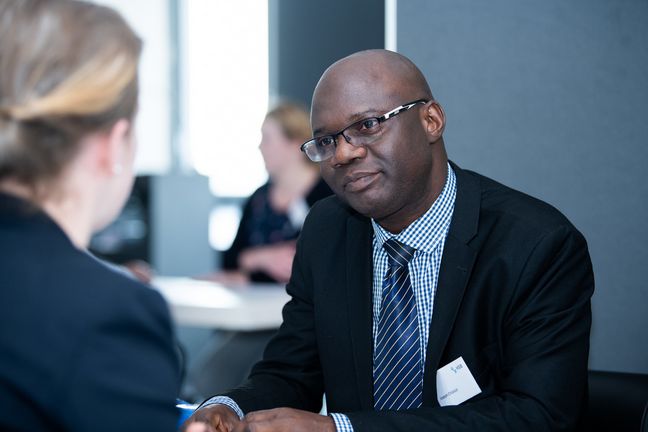Applying for a job and career prospects
Here you will find ideas and information for those who are currently applying for a work placement or who just want to get started after finishing their studies. We also welcome any suggestions you may have!
In any case, we wish you luck, strong nerves and good health!
A successful application begins with an analysis of your own skills and interests. Which competencies contribute to my profile? What am I particularly good at? What have I already done, in which areas have I gained experience? What does my individual career profile look like? It is worth investing time in this in advance, because the clearer you can formulate your own career ideas, skills and strengths, the easier the application will be.
Equally important is the question of what you want to achieve. Which subject areas appeal to you most? Which of your skills do you actually want to use on the job? Which working conditions are good for you? Where do you want to live and work? In Bremen, Berlin, Buxtehude or in Paris? Which people do you want to work with? And for whom? Employed, in your own office or freelance? And, last but not least, what values are important to you, what do you want to achieve with your work, what do you stand for? What could meaningful work look like for you? Get started! Let your ideas flow and seek feedback from friends and family.
Check your application documents: do they show where your strengths and qualifications lie and why you are motivated to work for the targeted company or organisation?
You make the best impression with a professional-looking, well sorted and attractive CV. In brief: anti-chronological (without primary school) one to two pages and always adaptable. A CV should highlight your own skills and at the same time respond to the job requirements (matching). Student jobs without direct reference to one's studies do not count as part of one's professional career but are better placed in a separate section. Personal interests and selected hobbies can round off your image and arouse curiosity about you as a person. But it should be a little more than "travel and sports"! Experience in voluntary work, social commitment or support in a club tell a lot about your competences, they should definitely be included in the CV.
In the cover letter, emphasise in the first paragraph exactly why you would like to get the job in question. In general: read the job description carefully, then be specific, give examples, go into detail about the requirements, avoid phrases and stay under one page.
You can score points with networks! Up to 60 percent of all jobs are placed through networks – so it can be very important to know people who know the right people or who might be able to provide that crucial lead to a vacancy. But networking is much more than a job-search tool. A good network can inspire; the contacts and exchange with others expand your knowledge, you get to know interesting people and broaden your horizons.
Analogue career fairs and personal interviews are rare at the moment. But networking remains important! Do you already have a XING or LinkedIn profile? Use social media actively for your application. Deliberately lay a trail on the Internet and let your profiles speak for themselves.
Instead of waiting for the right job offer, you can also turn the tables. Actively search for a company according to your ideas. Do your research! Gather all the inform you can find. Also take a look at rating portals. Does your profile fit this company? And would you be able to explain why in a subsequent job interview?
Company profiles can be found, for example, on Career Gate, for the northwest in the regional information system REGISonline – and there is a lot of information about Bremen companies on the pages of the Bremen Economic Development Agency.
© Hochschule Bremen - Marcus Meyer Photography
Being well prepared is half the battle! You have researched the company; can fluently explain why you are a good fit and can easily provide evidence of your strengths and competencies with examples? Prepare a few more questions and be sure to practice everything at home – then you will be well prepared.
What will still be there after Corona: the digital job interview. Tips: minimize background noise, make the visual background quiet, dress professionally even if you're sitting on the couch, sit up straight, with both feet well on the ground. Use daylight from the front and possibly an external mic to really set the scene. Leaning slightly towards the camera instead of making yourself small at the back and looking into the camera gives even more plus points.
